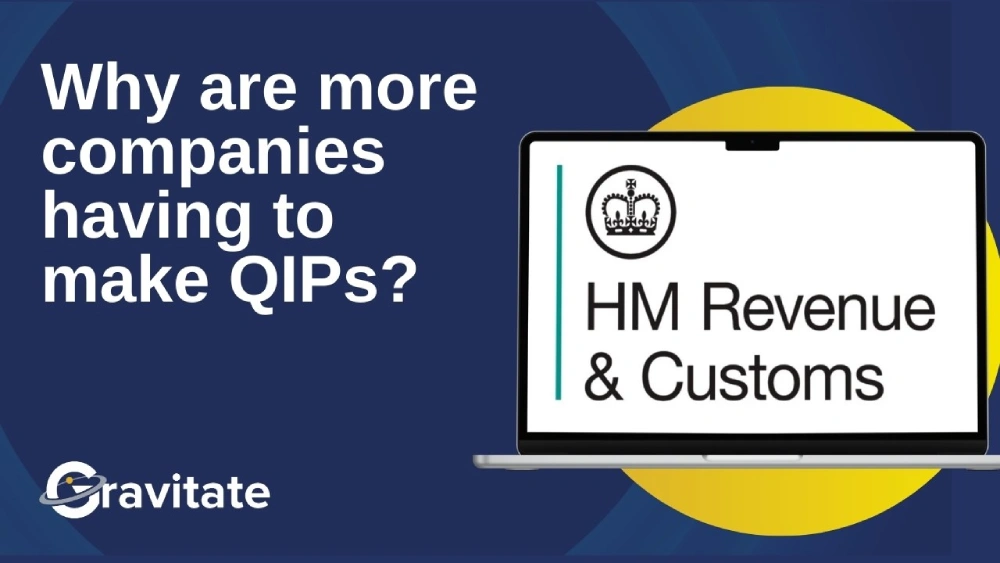Growth shares are a special type of equity designed to allow shareholders to benefit from the future growth in the value of a business.
Unlike ordinary share schemes, growth shares don’t immediately carry rights to the existing value of a company. Instead, their value grows once a certain performance threshold (known as a hurdle) is passed. This could be a company valuation or profit level threshold.
Growth shares are structured to align long-term incentives with the company's growth trajectory and are associate with a few unique tax benefits and considerations.
Growth Shares Tax Treatment in the UK
When growth shares are granted to employees or directors, the tax implications can vary a lot depending on how the shares are structured and whether they have any immediate value upon grant.
Income Tax Treatment of Growth Shares
Generally, if the shares are awarded for free or at undervalue, there may be an income tax charge as a "benefit in kind” provided by the employer to the employee.
- If the shares have no immediate value (i.e. they are only affected by future growth beyond a hurdle set at a sufficient level), they are typically deemed to have “negligible market value”. This means the income tax charge at grant may be zero, or a nominal value.
- If there is value in the shares when granted, it will usually be based on unrestricted market value (UMV) minus the actual price paid by the employee. This difference is taxed as employment income and is therefore subject to PAYE and NICs (National Insurance Contributions).
It’s important to note that HMRC may challenge the valuation of the shares if they believe they do have existing value or that the hurdle has been set too low.
This is why it is so important to obtain an independent share valuation and consider whether a Section 431 election is worthwhile. More on this below!
Growth shares as part of tax-approved scheme
It may also be possible to issue growth shares as part of a tax-approved scheme like EMI (Enterprise Management Incentives). Income tax relief and capital gains benefits may be unlocked this way, but not all companies or shares will qualify. Qualified advice is essential to get this right!
Don’t forget to report
Employers issuing growth shares have a legal responsibility to report the acquisition of employment-related securities to HMRC through the ERS (Employment Related Securities) online system. Failure to do so can result in penalties.
Capital Gains Tax on Disposal of Growth Shares
An employee who has been issued growth shares will one day dispose of them, providing the growth requirements are met. This usually happens because of a company sale, a MBO (Management Buyout), a sale to an EOT (Employee Ownership Trust) or an IPO (Initial Public Offering, or “going public”). When it does, the proceeds are usually subject to Capital Gains Tax (CGT), not Income Tax.
The good news is CGT rates are generally lower than Income Tax rates, particularly for higher earners.
How Capital Gains Tax works with Growth Shares
When growth shares are disposed of:
- The gain is calculated as the difference between the sale price and the acquisition cost (which might be zero).
- Capital Gains Tax is charged at either 18% or 24%, depending on the individual’s income and whether Business Asset Disposal Relief (BADR) applies.
- If BADR does apply, the effective tax rate could be only 14% (for the 25/26 tax year) on gains of up to the £1 million lifetime limit. Importantly, the employee must have held the shares for at least 24 months and meet certain other conditions.
The fact you can convert income into capital gains is a key benefit of growth shares, especially in start up and scale-up businesses. When structured properly, big tax savings are possible.
What is the Section 431 Election?
A Section 431 election is an important tax document that is signed by both the employee and employer when acquiring any restricted securities. The election allows the employee to choose to be taxed on the Unrestricted Market Value (UMV) rather than the Actual Market Value (AMV).
The benefits
Elections of this type are beneficial where the shares have restrictions which suppress their value until those restrictions are lifted. For example, limitations on transfer and forfeiture clauses.
Example
For example, if an employee buys shares for £1 per share which has an AMV of £1 per share and a UMV of £1.50 per share, they will be taxed on £0.50 per share. In this example, a future disposal at £100 per share will yield a capital gain of £98.50 per share.
This enables the employee to be taxed upfront on the full unrestricted market value of the shares, which is often minimal at grant. This locks in Capital Gains Tax treatment on future growth. Without this election, a proportion of the increase in valuation could be taxed as income, which are higher rates than capital gains tax rate.
The election must be filed within 14 days of acquisition to enable tax benefits. This is especially important in high-growth companies or equity-based schemes.
Timing is crucial for Growth Shares
Getting the timing right is critical for ensuring you get the full benefit of a growth shares scheme. If growth shares are not structured properly at the point of issue, or if they are transferred too soon, HMRC may reclassify some or all the gain as income, which effectively removes a key tax benefit due to a higher rate.
The tax benefit of Growth Shares is not automatic. The whole scheme must be carefully planned and documented, with supporting valuations and legal agreements in place.
Growth Shares present a fantastic opportunity for the right businesses; however, it is very important to seek appropriate advice to ensure your plans are legally compliant and take full advantage of the tax benefits available.

.png)


.png)

.png)
.png)

.png)
.png)
.png)













.png)
.png)
.png)

.png)
.png)

.png)







.webp)
.webp)








.jpg)

.webp)
.png)

.svg)
